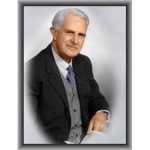Equipment Failure
I love it when a post or writer causes me to think about something from a different angle.
Dan at “The Ekklesia in Southern Maine” recently did that in his post “Equipped.” He used a metaphor to help me think about discipleship in a new way.
In the post, Dan talks about the difference between the way that Mainers deal with snow and the way that North Carolinians deal with snow. He writes:
So what is the difference? Like I said at the beginning, it always snows in Maine. It rarely snows in North Carolina. Mainers are prepared and equipped to deal with heavy snowfalls. North Carolinians are not equipped to deal with any snow. [In Maine] Every town, every grocery store, every strip mall has it’s own fleet of tractors, back hoes, dump trucks, or whatever other dinosaur vehicle they can get to plow snow. Every homeowner has a snow blower or a plow for their pickup. Every car is equipped with an ice scraper. Every porch has a shovel and a bucket of sand or salt sitting on it. Every Mainer has gloves and hats and boots and heavy jackets. We are prepared. We are equipped.
Dan compared being equipped for snow with making disciples. He wondered what would happen if the disciple-making chain (“the things that you have heard from me among many witnesses, commit these to faithful men who will be able to teach others also” – 2 Timothy 2:2) was broken.
But, Dan’s post made me think of something else. Since North Carolina rarely gets snow, it would be ridiculous to be as equipped for snow here (in North Carolina) as Mainers are. Oh, it might be beneficial for North Carolinians once or twice per year (or decade), but day in and day out, it would not be beneficial for North Carolina to be as equipped for snow as Mainers.
And, I wondered… could it be that most Christians and churches are “equipped” for the wrong things?
What do you think? What are most Christians and churches equipped for today? What should they be equipped for?
Serving in Lesotho
Ok… so, I’m learning. Apparently, my friend Jason from “Second and Content” is currently living in South Africa, but he’s actually serving in Lesotho, which is an independent nation completely surrounded by South Africa.
Interesting, huh?
Anyway, Jason has been keeping us up-to-date on his activities. Here are a list of his update posts (which include pictures and a video):
I also had the opportunity to Skype Jason last week. (I’m enjoying keeping up with friends around the country and around the world via Skype!)
I hope you enjoy Jason’s updates.
Who was T. Austin Sparks?
Josh at “Called to Rebuild” has written an excellent short biography of T. Austin Sparks in his post “Meet T. Austin Sparks.”
If you are interested in more simple / more organic expressions of the church, then you definitely want to read Josh’s post. And, you will probably want to read more about and by Sparks who lived from 1888-1971 and who moved away from more institutional forms of church when he was in his thirties (1926).
Here’s the first paragraph of Josh’s biography:
Theodore Austin Sparks was born in London, England in 1888. His life and ministry extended well into the 20th century, based out of his home in Honor Oak. Sparks was ordained a pastor in the Baptist denomination at the age of 25, but not long into his tenure he experienced a personal crisis of conscience, stemming from a new and altogether revolutionary apprehension of the Person of Jesus Christ and God’s eternal purpose concerning Him.  It was an encounter of such significance that it led him to abandon the title “Reverend†and withdraw his connection to the institutional church system of his day.
It seems that Sparks was dealing with some of the same issues that we’re facing today – around 100 years ago.
Have you read anything by Sparks? Do you know anything about him? What can you share with my readers?
We want to be with people we care about
Wayne from “The Lifestream Blog” has written an excellent article called “Finding Fellowship.”
In this post, Wayne is answering an email from a reader who is struggling with some “church” issues. The reader asked several questions, but most of them originated in Hebrews 10:25.
Here is part of Wayne’s response:
Believers who love each other will get together. That’s what friends and family do. My kids and grandkids get together every week or two. We don’t do it because we have to, because we’re trying to form a family, or any other reason other than we love each other and enjoy being together. Community is like that too. When we have people we care about we will be together. What so many groups miss is that the relationship must take precedence over the meetings. Meetings are a byproduct, not the method or the goal. If we’ll engage caring relationships first and begin to find a common heart together over dinner and evenings together as friends, we will find time to gather together as that network expands. I think it’s backwards to start a meeting first and hope friendships grow out of that. They can, but rarely do. I’ve been to many home groups where people meet together regularly but it is obvious they don’t really care about each other, spend time with each other beyond the meeting, or are truly friends in Christ.
Think about what Wayne said. I do believe it’s possible (though difficult) for friendships to develop from a meeting. However, I think the meeting must be of a form that encourages friendships and interrelation and not of a form that discourages or hinders relationships.
But, primarily, think about the main message that Wayne is trying to get across: If we care about people, we will want to spend time with them. If we love people and are concerned about them, we will want to meet with them. No one will have to force us or coerce us to meet together.
Pretty straightforward… and very true.
Two Posts about Preaching
There are two excellent posts at “GraceWorks.CA” on the topic of preaching: “Why do we preach?” and “The Church in dialogue with God.”
The first post examines the emphasis placed on 2 Timothy 4:2 in defense of the modern practice of monologue speeches given by leaders (pastors, elders, bishops) to the church. The second post examines some of the scriptural evidence for dialogue.
In the first article, the author writes:
It seems to me that Paul is telling Timothy to be ready to proclaim the message in any situation he finds himself in. Be ready to do it by convincing people, rebuking and encouraging. To proclaim it with patience in teaching. I don’t know that it fits as well to say that Paul is telling Timothy to be ready at all times to engage in a 30 minute exposition of scripture to a quiet audience.
In the second article, the author says:
If we cross reference this with Luke’s account in Acts 17 we find that Paul “reasoned†or “argued†with the people in the synagogue. The word used is dialogomai and it has a range of meanings from “discuss†and “argue†all the way to “address.†The meaning is determined by the context. In a typical gathering at a Synagogue the scriptures are read and someone offers their exhortation and commentary after the scripture reading. Initially Paul likely engaged with some form of monologue but it was also likely that the Jews would have questioned and eventually objected to what Paul was saying. In the end they ran him out of town and even travelled to the next town to do it again there. It isn’t hard to see where Luke might have got the idea that there was some arguing or disputing going on.
Both articles are well-written, and they are written in response to two well-known theologians who are defending modern forms of preaching (as the only valid method of teaching the church).
As I continue to think about these issues, I’m hoping to prepare another short post about preaching and teaching, monologue and dialogue.
Are you flexible?
Eric at “A Pilgrim’s Progress” has written (yet another) excellent post. This one is called “House Church – Flexibility.”
The post is a continuation of Eric’s series on house churches (generally), although people who are part of any type of church should think seriously about these topics.
Consider flexibility, for example. Eric writes:
Simply put, the house church can do whatever needs to be done to both edify the body and reach out to the lost. There are no institutional or tradition-based restraints upon this flexibility. The church can and should do whatever needs to be done. If the members see in scripture that they need to believe and/or live differently about a specific issue, change can occur immediately.
We never know what needs are opportunities God will present us with. I’ve been part of churches that were so rigid and bogged down with bureaucracy, that by the time anyone could make a decision, the need or opportunity had passed.
However, when the decision making process is pushed down to each believer, then everyone (and each one) can choose to act on needs or opportunities in whichever way God allows them (or provides resources and gifts, etc).
Are you flexible? Can you change when people or needs or opportunities change? Can you change in time?
Upgrade Church or Downgrade Church?
Jeremy at “Till He Comes” has written a great post called “Upgrade Your Church.”
He recently “upgraded” some of his websites, but the upgrade caused his sites to be slower. So, Jeremy ended up reverting back to the original version of his sites.
Next, Jeremy uses this experience as a metaphor for the church. Do we need an upgrade? Do we need to revert to an older version? You can read his comments on each part of this metaphor.
But, I really like the way that Jeremy ended his post:
Transitioning to a house church model is not a “revert†back to the way it was in the book of Acts. It is actually an upgrade from the institutional model to a more streamlined, service-oriented, all-inclusive, everybody-has-a-say operating system with fewer scripts, plugins, coding errors, and restrictions. And definitely no “Are you human?†codes to decipher.
So, have you upgraded your church recently? If so, how is it functioning?
Now, as most of my readers know, I’m not a house church proponent. However, I definitely agree that changing from a more traditional and institutional way of understanding the church toward a more organic and simple way of understanding the church is a great upgrade!
No, I’m not interested in reverting back to Church 50AD. However, I think we can learn alot from Church 50AD in order to understand and live as Church 2100AD.
(By the way, while you’re reading Jeremy’s post about upgrading the church, you may also want to read an article that he wrote for The Ooze called “The Humanizing Church.” Great stuff!)
Answering a question about churches and pastors/elders
My good friend Eric at “A Pilgrim’s Progress” continues his string of excellent blog posts with one called “Should Churches Have Pastors? Why?”
It’s a short post, and it primarily consists of Eric asking the two questions from the title: 1) Should churches have pastors? and 2) Why?
I told Eric in the comments that I thought this was a very good pair of questions and that I wanted to think about them before I answered. This post is my answer.
First, pastoring is a spiritual gift. You can see this most easily in Ephesians 4:11 where “pastors” (those gifted with the spiritual gift of pastoring/shepherding) are listed along with other spiritually gifted people in a context that is about the gifts that Jesus gives. Since Paul said that God arranged the members of the body (speaking specifically of “members” as people with certain spiritual gifts), then if a church needs someone gifted in pastoring, then God will so arrange it. (Of course, this doesn’t discount the fact that every believer is responsible for pastoring – caring for each other – even when they are not so gifted, just as ever believer is responsible for teaching even if they are not spiritually gifted as teachers and every believers is responsible for encouraging even if they are not spiritually gifted as an encourager.)
However, Eric was not talking about the spiritual gift of pastoring. He explains in this excerpt (and then again in the comments):
When I use the term “pastor,” I’m thinking from a biblical as opposed to a traditional perspective. Â As the bible describes pastors/elders/overseers, should churches have them?
So, Eric is asking, “Should church have pastors/elders/overseers? and Why?” Since Eric said “biblical as opposed to a traditional perspective,” I will have to give a quick overview of my understanding of elders. Elders/overseers are older people within the church who have been recognized by the church because of their faith and life in Christ. They primarily serve as examples to others in the church in how to trust Christ and how to live for him by serving others. (Note: These people do not start living a certain way because they are elders/overseers. Instead, the church should recognize those who are already living in a manner worthy of Christ.)
We should recognize that churches existed before elders/overseers were recognized. We see this especially in Acts 14:26, but we probably also see it in 1 Timothy and Titus (depending on when you choose to date those books). So, elders/overseers are not necessary for a group of people to be a church.
Instead, after a group of people are already a church – for a long enough time that they know one another and have observed one another’s livers – then elders/overseers are recognized by the church.
However, it seems that elders/overseers are beneficial to the church when they serve as examples in faith and service. In fact, most of the instructions to or about elders/overseers teach that people do not simply become elders/overseers because of their age, but because of their character, care for others, service to others, and faith in Christ.
I believe it is in this (character, care for others, service to others, and faith in Christ) that we find the benefit of a church recognizing elders/overseers.
So, should churches have pastors/elders/overseers? Why? Yes, if there are mature believers who can be recognized for their faith in Christ and service to others and who live in a way that presents a good example of following Christ that others can follow.
Where do we go from here?
In his latest essay, Dave Black asks an excellent question: “So We’ve Studied Acts. What Now?”
Apparently, his fellowship recently completed a study of the Book of Acts. Dave recounts how they talked about the early church’s evangelism, missions, proclamation, quality of life together, leadership, prayer, and meetings.
Then, he asks a series of questions that we all need to consider:
What more can I say? The guidelines are there, and they demand from us a response. At every stage we are completely dependent upon the Spirit in the work of renewal and restoration. We cannot effect change on our own. We cannot force the issue. And we cannot escape our utter dependence on the work of the Spirit in us (2 Cor. 3:18).
Don’t we want that power in our churches today? Or will we be content with the status quo — churches that are dull, predictable, bourgeois, dominated by clergy — a shallow and ineffective parody of what the church should be?
We also study through various books of the Bible. We recently completed a long study of Genesis and a shorter study of James. In a few weeks, we’ll start a study of Colossians.
After each study, we should ask ourselves, “What now?” (And, if we are only looking for another book to study, then we’ve missed the point.)
There is a point to our study and meeting and discussion and exhortations. If these things are not leading us (all of us) to proclaim the good news and serve those around us, then we are missing the point completely.
First Update from Jason
Yesterday, I asked you to pray for my friend Jason who recently moved to South Africa for a year to minister in some villages there. (See my post “Pray for Jason in South Africa.”)
I told you in that post that Jason landed in South Africa yesterday, and that he was getting settled in to his new home. Well, apparently it doesn’t take him long to settle in. According to his latest blog post “Arrival,” Jason and Wim (the man he’s working with) will begin going out to the villages tomorrow.
Jason writes:
Tomorrow, Wim and I are going into Lesotho to check up on one of the care centers. Â Its a long ride, an hour to the border, then another 3 on dirt roads to the village.
If you’re interested in following Jason’s adventures, jump over to his blog “Second and Content.” There’s much more information in that first blog post; you’ll learn about the parrot that he’s living with.
He’s even added a section to his site about South Africa with a page detailing how you can get in touch with him.










